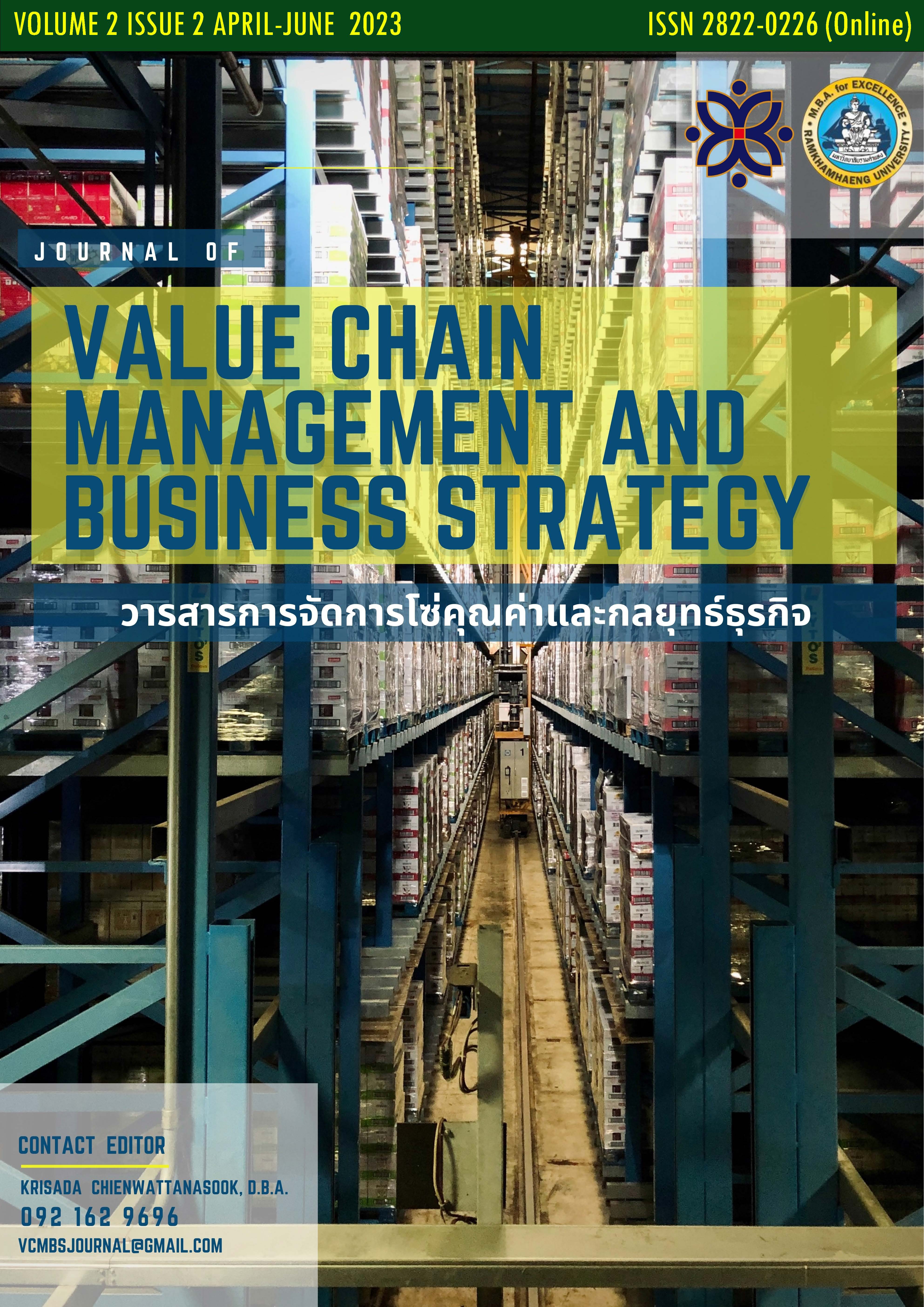EFFECTS OF ATTITUDE TOWARDS ORGANIZAIONAL MANAGEMENT ON WORK EFFICIENCY OF CIVIL SERVANTS UNDER THE DEPARTMENT OF MEDICAL SERVICES IN NONTHABURI PROVINCE
Keywords:
Attitude Towards Organizational Management, Work Efficiency, Department of Medical ServicesAbstract
The purpose of this study is to investigate the personal factors that affect the work performance of civil servants in the Medical Department in Nonthaburi Province, and to investigate the attitudes towards work management within the organization that have an impact on the work performance of civil servants in the same department. The sample group for this study consists of 296 civil servants working in the medical department in Nonthaburi province and employed by the organization. Convenience sampling was used to select the sample and a questionnaire was used as an instrument to collect data. Data analysis was done using frequency, percentage, mean, standard deviation, and hypothesis tests, including t-tests, one-way ANOVA, and multiple linear regression.
The research found that differences in personal factors, including gender, age, education level, monthly income, and type of job, had a statistically significant effect on job performance of civil servants in the Department of Medical Services in Nonthaburi Province at the .05 level. And the attitudes related to cognitive, behavioral and affective aspects have a positive influence on the work efficiency of civil servants in the Department of Medical Services in Nonthaburi Province, in the order of statistical significance at the level of .05, with a predictive power of 79.9%. These results can be used to develop human resource strategies that are tailored to the needs and differences of each job type in the organization. They can also be used to help create positive attitudes that promote efficient work performance.
References
กรมการแพทย์. (2566). ภารกิจ และหน้าที่รับผิดชอบ. https://www.dms.go.th/AboutUs/About_Mission
กองบริหารทรัพยากรบุคคล. (2565) บัญชีข้าราชการและพนักงานราชการ. https://hrm.dms.go.th/index.php?page=guest-competitive
ธนาคารแห่งประเทศไทย. (2563). เศรษฐกิจโลก เศรษฐกิจไทยหลังโควิด 19 โรคปฏิวัติโลกยกเครื่องสู่อนาคตวิถีชีวิตใหม่. https://www.bot.or.th/Thai/BOTMagazine/Pages/256303_CoverStory.aspx
ลลิตา พรหมปั้น. (2564). การศึกษา ความรู้ ทัศนคติ และการปฏิบัติงานของนักกายภาพบำบัดไทยในงานสร้างเสริมสุขภาพ. เวชสารแพทย์ทหารบก, 74(3), 185-195.
สมชาติ เกตุพันธ์, ณิช วงศ์ส่องจ้า, ณรงค์ กุลนิเทศ และทศพล ชูโชติ. (2563). ทัศนคติ การรับรู้ แนวโน้มพฤติกรรม และการมีส่วนร่วมในการรักษาวัตถุพยาน ที่ส่งผลต่อประสิทธิภาพการปฏิบัติงานของเจ้าหน้าที่มูลนิธิบรรเทาสาธารณภัย. วารสารสันติศึกษาปริทรรศน์ มจร, 8(5), 1886-1898.
สุดารัตน์ สะโดอยู่ และแสงจิตต์ ไต่แสง. (2565). ปัจจัยในการปฏิบัติงานที่ส่งผลต่อประสิทธิภาพในการปฏิบัติงานของพนักงานบริษัท เอลเลค แอนด์ เอลเทค (ประเทศไทย) จำกัด จังหวัดปทุมธานี. วารสารวิทยาการจัดการปริทัศน์, 24(2), 1-10.
อัครเดช ไม้จันทร์ และนุจรีย์ แซ่จิว. (2561). ปัจจัยที่มีผลต่อประสิทธิภาพในการปฏิบัติงานของพนักงานกลุ่มอุตสาหกรรมติดตั้งเครื่องจักรสายการผลิตในจังหวัดสงขลา. วารสารราชภัฏสุราษฎร์ธานี, 5(1), 95-121.
Aguinis, H., & Pierce, C. A. (2012). Enhancing the relevance of organizational behavior by embracing performance management research. Journal of Organizational Behavior, 33(2), 129-145.
Ajzen, I., & Fishbein, M. (2012). Attitudes and the attitude-behavior relation: Reasoned and automatic processes. In Handbook of theories of social psychology (pp. 1-17). Sage Publications Ltd.
Betsch, T., & Haberstroh, S. (2018). The behavioral immune system and attitudes towards vaccines: Negative affect rather than a specific pathogen concern determines vaccine skepticism. Social Science & Medicine, 211, 274-281.
Bruch, H., & Walter, F. (2012). What's your motivational style? Self-assessment tool for a better understanding of how to motivate others. Journal of Management Development, 31(9), 901-913.
Cardon, M. S., & Stevens, C. E. (2012). Managing human resources in small organizations: What do we know? Human Resource Management Review, 22(4), 222-231.
Chen, Y. J., & Chang, H. Y. (2012). Affective commitment to organizations: A comparison study of the US and Taiwan. Journal of Applied Business Research, 28(3), 521-530.
Cho, J., & Lee, H. (2019). The role of self-concept in explaining gender differences in online shopping behavior. Journal of Retailing and Consumer Services, 47, 277-284.
Gharakhani, D., Razavi, S. M., & Moeinzadeh, A. (2012). The impact of attitude on employees’ job performance in service organizations. Procedia-Social and Behavioral Sciences, 41, 263-270.
Hsu, L. C., & Lin, W. H. (2012). The influence of ethical leadership on organizational citizenship behavior: The mediating role of psychological contract fulfillment. Journal of Business Ethics, 108(4), 533-543.
Jang, S. M., & Kim, J. Y. (2016). The influence of cognitive, affective, and behavioral components of attitudes on consumers’ responses to online advertising. Journal of Interactive Advertising, 16(2), 108-119.
Judge, T. A., & Bono, J. E. (2011). Relationship of core self-evaluations traits—self-esteem, generalized self-efficacy, locus of control, and emotional stability—with job satisfaction and job performance: A meta-analysis. Journal of Applied Psychology, 86(1), 80–92.
Latham, G. P., & Locke, E. A. (2012). The effects of goals on organizational behavior and performance. In Handbook of industrial, work and organizational psychology, Volume 2: Organizational psychology (pp. 155-169). Sage Publications Ltd.
Noe, R. A. (2012). Employee training and development (6th ed.). McGraw-Hill Education.
Ongori, H., & Agolla, J. E. (2017). Influence of employee attitude on job performance in the banking sector in Kenya. Journal of Human Resource Management, 5(2), 25-34.
Park, H. S., & Scheufele, D. A. (2014). Examining the cross-cultural validity of the cognitive, affective, and behavioral dimensions of climate change. Science Communication, 36(1), 56-77.
Ranganathan, J., & Prasad, S. (2014). Measuring attitudes using self-report scales: A review of current practice and challenges. ISRN Psychology, 2014, 12.
Turner-McGrievy, G. M., Beets, M. W., Moore, J. B., & Kaczynski, A. T. (2020). Association of cognitive, affective, and behavioral constructs with physical activity behavior in children: A systematic review. Journal of Physical Activity and Health, 17(3), 327-339.
Wood, D., Galloway, T., & Pattie, M. (2012). Cognitive, affective and behavioural components of environmental attitudes. Journal of Environmental Psychology, 32(2), 164-175.
Yamane, T. (1967). Statistics, An Introductory Analysis, 2nd Ed.. Harper and Row.
Downloads
Published
How to Cite
Issue
Section
License
Copyright (c) 2023 Journal of Value Chain Management and Business Strategy

This work is licensed under a Creative Commons Attribution-NonCommercial-NoDerivatives 4.0 International License.




